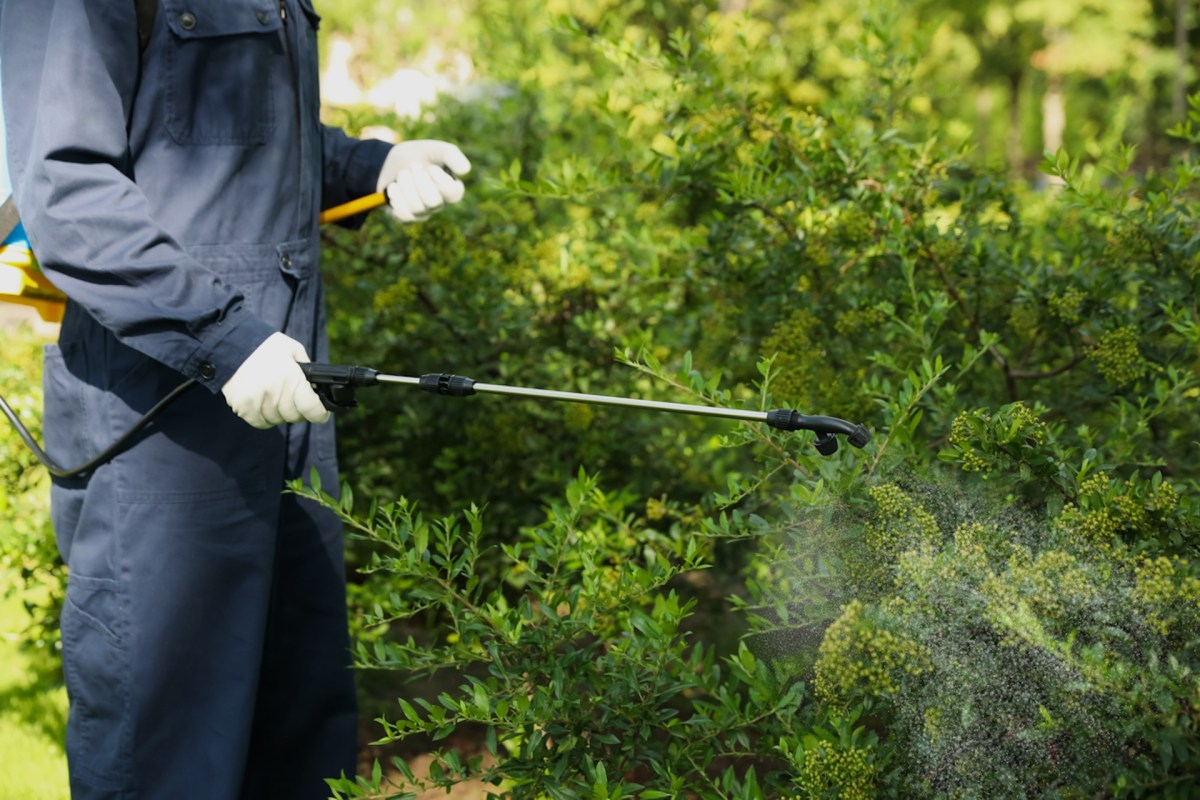Despite telling their pest control company to apply pesticides only inside their home, one Redditor from Georgia said the company misunderstood their request and mistakenly sprayed their garden.
"We had a huge number of butterflies and bees on our Turks cap and Salvia a few months ago (have not seen them recently; they hopefully are hibernating as it's been pretty chilly)," they wrote in a post in the r/NativePlantGardening subreddit. "I'm so worried about our hibernating insects outdoors in any woody stems or soil."
The devastated homeowner asked the community about the best strategy to help vulnerable insects survive the chemical onslaught.
Commenters empathized with the OP and offered several helpful suggestions, such as cutting the plants back, diluting the pesticide with water, and simply allowing the chemicals to break down and wear off.
The NC State University Extension recommends growing plants that absorb herbicides, such as grasses, wheat, onions, and corn. Other options include installing a raised bed over the contaminated soil or treating the soil with a mixture of water, compost, activated carbon, and wood ash to help pesticides break down faster.
Other gardeners, including Sierra Flower Farm and The Dirt Doctor, have successfully used activated charcoal to heal pesticide-ridden soil. In addition, Howard Garrett from The Dirt Doctor suggests spraying plants with a mixture of 1 cup of compost tea or liquid humate, 1 ounce of molasses, 1 ounce of apple cider vinegar, 1 ounce of liquid seaweed, and 1-2 ounces of orange oil to stimulate microorganisms that break down toxins.
While the OP's garden will likely recover, it's still frustrating to deal with a pest control company you entrusted to care for your plants being so inattentive.
"I don't think there is much you can do at this point beyond spraying everything with water. Was it an honest miscommunication? My experience with paid helpers and hiring subcontractors has been that they don't take good notes," one commenter shared. "Having a detailed quote about the scope of the work is super important. I would be pretty mad if this happened to me, but I don't trust the safety of pesticides."
"I would cut a lot of the plants back to avoid attracting pollinators to a deadly area for them," another said.
"My gut says to spray off the pesticide as soon as possible. Yes, you're technically spreading it around more, but you're also diluting the chemicals. Which should make them less effective," another suggested.
Join our free newsletter for easy tips to save more, waste less, and help yourself while helping the planet.









